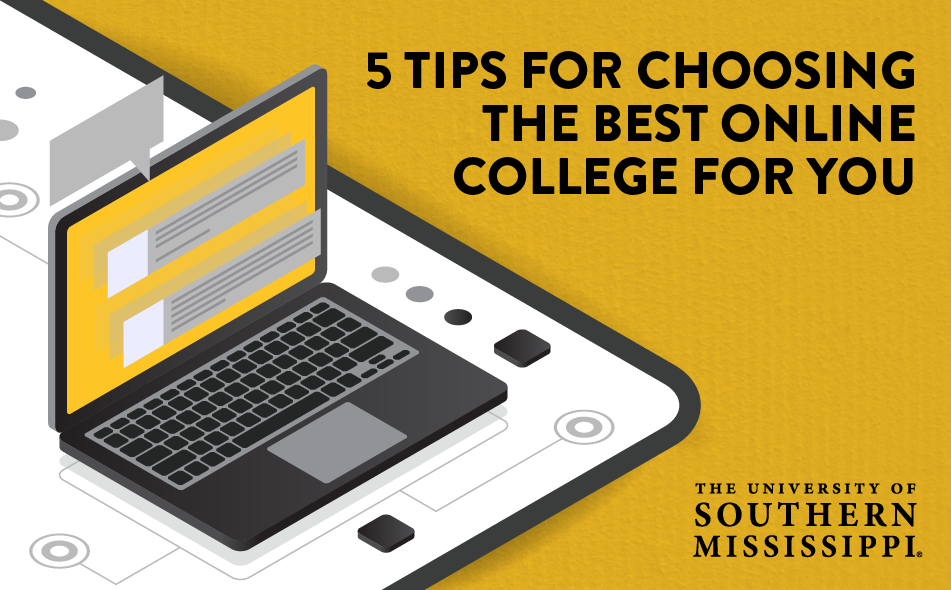You’ve made up your mind. You know it’s time to get your degree at an online college. But how do you know which college or university to choose?
We have 5 tips to help you make a wise decision and choose the best online college that fits your needs.
Tip 1: Decide if you want a fully online degree or if you’re okay making a few campus visits.
Not all colleges and universities are the same. Some offer fully online degrees where a student never has to come to campus. Others offer on-campus degrees as well as online degrees that require a few visits to the physical campus.
Tip 2: Learn the lingo.
Hybrid? Fully online? Campus requirements? What does all of this mean?
You need to know the lingo to make the right decision for you. Hybrid degrees have a mix of online and in-person classes. Most fully online degrees have all the classes online. But here is where you need to be careful. It may sound confusing, but some fully online degrees still have campus requirements. That is where you have to go to campus for something, orientation, internship, etc. The best online college meets your needs. Ask now whether or not you ever have to come to campus.
Tip 3: Check credentials.
The best online colleges are accredited. According to EdSmart.org, in the United States, accreditation means that the institution that you are planning on attending for your higher education is regularly assessed by an independent agency on the quality of the education it provides.
Just look at the bottom of the college’s website for accreditation information. If you can’t find it, do a little more research, even if it means calling or emailing the school. You want a top online college, so find out if it is accredited.
Tip 4: Determine if it is a for-profit or non-profit college.
You might not know it, but there is a difference between a for-profit college or university and a non-profit one. According to Petersons.com, non-profits tend to offer more traditional education in science, the arts and humanities, mathematics, and engineering.
For-profit colleges, on the other hand, tend to offer more skills-based training and vocational education in various trades, including design, automotive, medical assistant, and hospitality.
Tip 4: Check to see if credits transfer.
You have every intention of finishing your online degree, but sometimes life gets in the way. To find the best online college for you, ask the universities you are looking into attending if the credits you earn will transfer to another college or university.
Petersons.com reminds you:
The other thing to keep in mind is that most for-profit college credits won’t be able to transfer to another institution, especially to non-profit schools. Non-profit colleges generally allow transference of credits between other non-profit schools that have the same degree compositions, but not always. It is best to check with the specific school about this.
Tip 5: Check out the support available for online students.
What happens when you need help? The best online colleges offer support to students who take their classes online. Look around FAQs on the college website and find out if they offer any services like a writing center to help you out with papers, support for military students, online chats with librarians if you need help, or if they offer career planning services remotely.
RELATED: Mississippi Students Start Planning and Get2College , 5 Ways to Use Your GI Bill
Now that you have tips on choosing the best online colleges, you can make the choice that is right for you. No time is better than now. If you are ready to get started on your online degree at an accredited university that offers strong support for online students, take a look at Southern Miss and our fully online degree programs.







Share on Social Media: